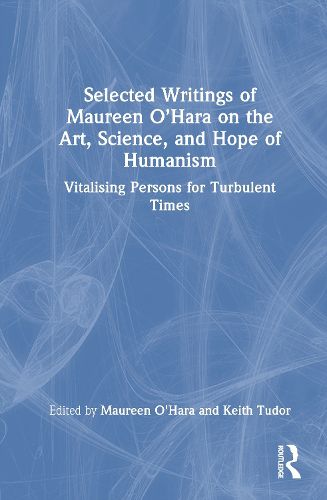Readings Newsletter
Become a Readings Member to make your shopping experience even easier.
Sign in or sign up for free!
You’re not far away from qualifying for FREE standard shipping within Australia
You’ve qualified for FREE standard shipping within Australia
The cart is loading…






This book presents the work of the eminent British-American psychologist, Maureen O'Hara. It explores the trajectory of humanistic psychology over the last few decades, providing a link between its original proponents, notably Carl Rogers, and its contemporary manifestations.
The text reproduces 18 of O'Hara's original papers arranged in six parts, each of which reflect a significant area in which she has contributed her rigorous analysis and creative thinking, i.e., the person-centred approach, humanistic psychology, third force science, client-centred therapy, psychology futures, and education. A unique feature of the book is a series of dialogues about O'Hara's contributions in each of these areas with the book's editor, Keith Tudor. The dialogues reveal not only O'Hara's reflections on and further thinking about each area of her contributions, but also how prescient her analysis was, and how contemporary and relevant her thinking still is.
Bringing together a collection of O'Hara's works to a broader audience, this book will be of interest to humanistic psychologists and psychotherapists, as well as those studying and/or training in this field.
$9.00 standard shipping within Australia
FREE standard shipping within Australia for orders over $100.00
Express & International shipping calculated at checkout
This book presents the work of the eminent British-American psychologist, Maureen O'Hara. It explores the trajectory of humanistic psychology over the last few decades, providing a link between its original proponents, notably Carl Rogers, and its contemporary manifestations.
The text reproduces 18 of O'Hara's original papers arranged in six parts, each of which reflect a significant area in which she has contributed her rigorous analysis and creative thinking, i.e., the person-centred approach, humanistic psychology, third force science, client-centred therapy, psychology futures, and education. A unique feature of the book is a series of dialogues about O'Hara's contributions in each of these areas with the book's editor, Keith Tudor. The dialogues reveal not only O'Hara's reflections on and further thinking about each area of her contributions, but also how prescient her analysis was, and how contemporary and relevant her thinking still is.
Bringing together a collection of O'Hara's works to a broader audience, this book will be of interest to humanistic psychologists and psychotherapists, as well as those studying and/or training in this field.